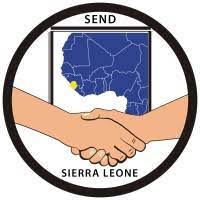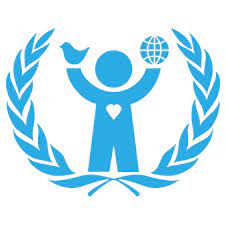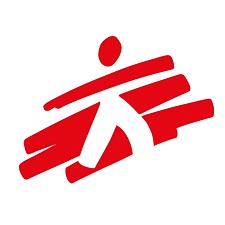Job Vacancy at SEND – Advocacy Advisor
Location: Kenema
Duties, roles and responsibilities
Objectives of the Position
The Advocacy Manager will jointly with the Project Manager take overall responsibility for the successful planning, design, execution, coordination, monitoring, controlling and closure of Citizen Driven Climate Sensitive WASH Management Project of Engineers Without Borders, Denmark, SEND Sierra Leone and World Hope International Sierra Leone to deliver on projects objectives and all donor guidelines.
(adsbygoogle = window.adsbygoogle || []).push({});
The project focuses on the harmful effects of the changing patterns and levels of rainfall and with water identified as being the natural hazard that, in the future, will impact livelihood in Sierra Leone the most. As livelihood, health and water are distinctly linked, the water, sanitation, and hygiene (WASH) activities will be used as leverage and an entry point for a more climate-resilient livelihood at the community level. The project’s citizen-driven approach maps and subsequently addresses the negative impact of each participating community. The information from the community level and citizen engagement will be used to feed into district-level risk mapping/assessment and provide the basis for systematic planning and prioritising the district's resources and development plans with citizen participation and civic engagement. The bottom-up approach is also used as a policy influencer and to demonstrate, on a broader national platform, how civil society can engage and be reckoned as an agent of long-lasting positive change concerning poverty, fragility, and livelihood, as the initiative will provide examples "pulled" directly from the 50 communities involved.
The project works to address the following challenges:
Community and district level actors lack skills and knowledge to address the increasing WASH vulnerability because of climate change, with excessive and changed rainfall being the main natural hazard).
Despite decades of effort to build technical capacity, civil society (as in organised communities) does not generate sufficient skills to maintain and repair water points or other infrastructure.
No link exists between the buyer (community) and the seller (small-scale technical service provider); hence, a market mechanism to promote external needed service to infrastructure is lacking.
(adsbygoogle = window.adsbygoogle || []).push({});
Lack of knowledge (in all strategic actors) to integrate a climate adaptation focus on the WASH management.
Lack of a standardised approach to WASH governance (at both community and district level) hinders effective and transparent management of the sector targeting and ensuring climate robustness.
No systemised approach to local knowledge sharing on the impact of climate change exists– documentation of incidents or effects.
It also aligns with national-level work on climate adaptation, combined with an increased policy focus on market-driven service delivery, as stated in the national WASH policy and the recent UNICEF supported strategy on Sanitation and Hygiene. Based on that, the aim is to ensure climate-sensitive robust WASH governance and improve the robustness of existing WASH infrastructure through building a bridge between the national policy level and actual implementation through civil society involvement. Hence, the initiative will facilitate and support the “bridge-building” between the users (population) and the private service providers as a central element in sustainable and climate robust WASH infrastructure. Climate change is increasingly impacting the country negatively and must hence be addressed fiscally and technically; however, its deficit of institutional, economic, and technical capacity makes it pivotal that civil society combined with the private sector is also engaged.
(adsbygoogle = window.adsbygoogle || []).push({});
Roles and responsibilities
Project planning, implementation and monitoring:
Engage and maintain effective relationships with district and national level stakeholders to shape opinions on WASH through advocacy and education.
Provide overall leadership and strategic direction to district and national level advocacy campaigns, providing guidance and structure for effective planning and quality assurance, ensuring WASH and climate change sensitive-driven activities.
Keep WASH and climate change leaders engaged and aware of project successes and activities through regular, informative communications.
Conduct periodic multi-stakeholder meetings to build consensus within the Kenema district on developing new solutions to water and climate challenges they face.
Maintain active engagement with other local partners, including local and international NGOs, implementing partners, and other development sector stakeholders.
Ensure that cross-cutting themes such as safe programming, multiple-use water services (MUS), gender transformative practices, promising community WASH governance approaches, and climate change are effectively integrated into advocacy campaigns.
Facilitate and document lessons learned and best practices generated by project-run activities, and organise learning and sharing opportunities between project-based and external stakeholders regularly as appropriate.
Use problem-solving and consensus-building skills to promote coordination among diverse interests and institutions.
Represent the project at the national level advocacy activities on WASH and climate change
(adsbygoogle = window.adsbygoogle || []).push({});
Required Skills:
Demonstrated experience managing WASH or climate change advocacy initiatives in Sierra Leone.
Demonstrated experience with capacity building of community groups and government leaders to support their design and implementation of advocacy campaigns.
Knowledge and prior application of participatory methodologies on WASH and climate change adaptation advocacy
Strong leadership, analytical and organisational skills.
She has demonstrated the ability to quickly assess priorities and effectively manage various activities at a time while paying appropriate attention to detail.
He or she must have excellent interpersonal skills and the ability to interact professionally with donors, project stakeholders, collaborators and staff at all levels of the organisation.
Proven ability to convene/chair high profile meetings and knowledge to productively interact with a wide range of organisations (e.g. government, private sector, NGOs, and research institutions).
Technical familiarity with WASH program design and implementation preferred.
Must be willing to work and stay in Kenema and travel regularly to Freetown to take part in coordination and advocacy processes
(adsbygoogle = window.adsbygoogle || []).push({});
Experience/Qualifications
At a minimum Bachelor’s Degree in public administration, social science, natural science or other relevant fields.
A minimum of five (5) years of practical experience working on community development projects with demonstrated assessment, analytical and planning skills and an ability to translate analysis into recommendations for practical action.
Minimum three (3) years of experience implementing WASH or climate change-funded programs in Sierra Leone preferred.
Fluent in English.
All applications must be forwarded to:
recruitment@sendsierraleone.com
Closing date: 19th January 2022
(adsbygoogle = window.adsbygoogle || []).push({});
Disclaimer: Careerical eConsult posts job listings for the convenience of job seekers. We do not endorse or recommend employers, and a posting does not constitute an endorsement or recommendation. Careerical eConsult explicitly makes no representations or guarantees about positions listed on our website. Careerical eConsult is not responsible for safety, wages, working conditions, or other aspects of employment. It is the responsibility of applicants to research the integrity of the organizations to which they are applying. We advise you to use caution and common sense when applying for any position with an organization or private party.



